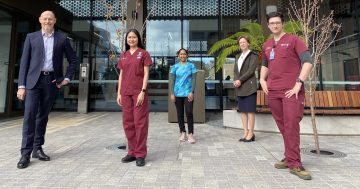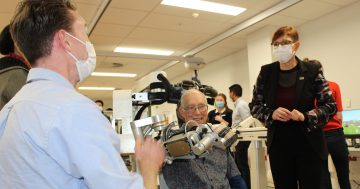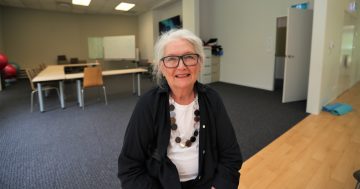
The Stroke Foundation launches StrokeConnect program to monitor stroke patients’ recovery.
A program to provide increased post-discharge care for local stroke patients in an attempt to improve stroke-patient recovery has been launched in the ACT.
The Stroke Foundation‘s StrokeConnect program will contact stroke patients after they have left hospital, to provide them with information, advice, support and referrals.
The follow-up service, which is already implemented in Queensland, Victoria and New South Wales, was a 2016 election promise by the ACT Government.
The ACT Government’s Minister for Health, Meegan Fitzharris, said the program will reduce re-admissions and will improve the ACT health service.
“StrokeConnect will demonstrate how post-discharge strategies can improve the health of Canberrans, give eligible patients useful information and connect them with services that will help them to recover following discharge from hospital,” she said.
“The Stroke Foundation will manage the program and work with our public hospitals to receive referrals from consenting patients.”
Ms Fitzharris said Canberrans suffered an estimated 700 strokes last year and was happy the ACT Government had committed $320,000 over four years towards the StrokeConnect initiative.
“StrokeConnect is a unique opportunity to further look at how post-discharge care programs work. Valuable data and learning will contribute to the Australian Stroke Clinical Registry, which will be an asset to clinicians and health professionals in the ACT,” Ms Fitzharris said.
The Minister for Health said a small group of clinicians and Stroke Foundation representatives will monitor StrokeConnect in the ACT across four years to examine the program’s effectiveness and whether StrokeConnect’s approach can be adopted for other disease groups and conditions.
Stroke Foundation ACT State Manager Teresa Howarth welcomed the funding for StrokeConnect and said it would ensure local stroke survivors and their loved ones have the support and services they needed to live well after a stroke.
“Stroke is potentially devastating and happens without warning, leaving the individual and their families with no time to prepare,” she said.
“This program complements existing support for stroke survivors and their loved ones by providing much-needed help on their return home, which for some is described as the most challenging phase of their recovery.”
Stroke is among the three largest causes of death in Australia and a leading cause of disability. One in six people will have a stroke in their lifetime, and the number of admissions to Canberra Hospital’s stroke unit has increased by more than 30 per cent in the last decade.





















